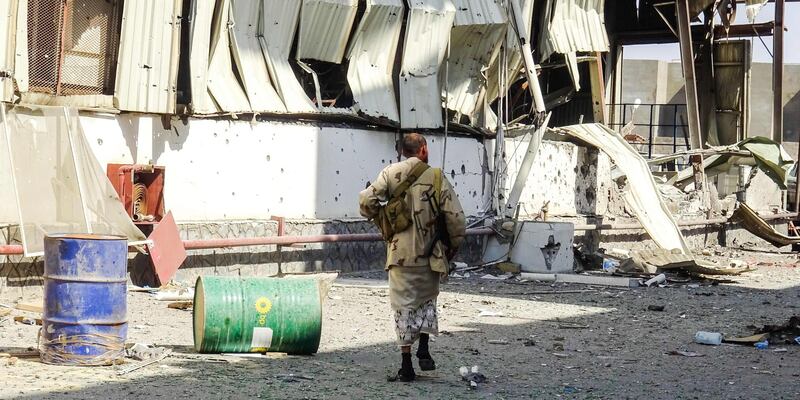Saudi Arabia and the United Arab Emirates on Tuesday pledged $500 million to tackle food shortages in Yemen, after humanitarian officials warned that the war-torn nation is heading towards the worst famine seen anywhere in the world over the past 100 years.
The donation was announced by Reem Al Hashimy, UAE Minister of State for International Cooperation, and Abdullah Al Rabeeah, the general supervisor of King Salman’s Humanitarian Aid and Relief Centre (KSRelief), during a press conference on Tuesday.
The pledge, once fulfilled, would raise the total value of assistance provided by the Arab coalition to Yemen to more than $18 billion over the past three years.
Saudi and the UAE will each contribute $250 million to international and regional relief agencies, including those affiliated with the UN, to ensure that food assistance is delivered to all provinces and regions in the war-torn country.
Ms Al Hashimy said that the new aid programme will provide food assistance to up to 12 million Yemenis.
Eight million people in Yemen are affected by severe food shortages, according to UN officials, who warn that up to 14 million - or half of Yemen's population - are at risk of famine.
Of that number, 1.8 million are children under five years old who are described as acutely malnourished. Another 400,000 are severely acutely malnourished, and yet another 1.1 million are malnourished pregnant or nursing women.
Ms Al Hashimy said that the UAE and Saudi Arabia are working with organizations on the ground to ensure that aid and food assistance reaches the most vulnerable populations.
“We are focusing on the most affected groups, especially malnourished children, pregnant women and the elderly,” she told reporters. “We will ensure that humanitarian conditions improve.”
المملكة العربية السعودية والإمارات العربية المتحدة تطلقان مبادرة "إمداد" لسد فجوة الاحتياج الغذائي في #اليمن بمبلغ 500 مليون دولار أمريكي pic.twitter.com/CPPPu3rUVL
— مركز الملك سلمان للإغاثة (@KSRelief) November 20, 2018
The latest relief effort is a continuation of humanitarian donations presented by member states of the Arab coalition, who have provided $18 billion in aid to Yemen over the past three years, Mr Al Rabeeah said.
He said the new programme underscores Saudi Arabia and the UAE’s commitment to meeting humanitarian needs in the war-torn country.
Tuesday’s announcement comes less than a month after UN Undersecretary-General for Humanitarian Affairs and Emergency Relief Coordinator Mark Lowcock said that Yemen could now face the worst famine in living memory.
It also comes one week after the head of the UN World Food Programme warned that the country faces a full-blown famine in about six months because of the economic collapse from the war.
David Beasley, who returned from a trip to Yemen last week, told the UN Security Council that the international community must combine increased humanitarian funding with "an all-out effort to restore the Yemeni economy” to combat food shortages.
Yemen is the world’s worst humanitarian crisis, where 8.3 million people are dependent on food aid, according to the UN. The nearly three-year civil war has pushed the country to edge of famine with outbreaks of cholera and diphtheria.
The Saudi-led coalition intervened in Yemen in 2015 to push back the Houthi rebels and restore the country's legitimate government of President Abdrabu Mansur Hadi. The Houthi rebels, backed by the Iranian regime, have repeatedly launched ballistic missile towards Saudi, which has successfully shot them down.
_______________
Read more:
Editorial: The moment for peace in Yemen must be seized






